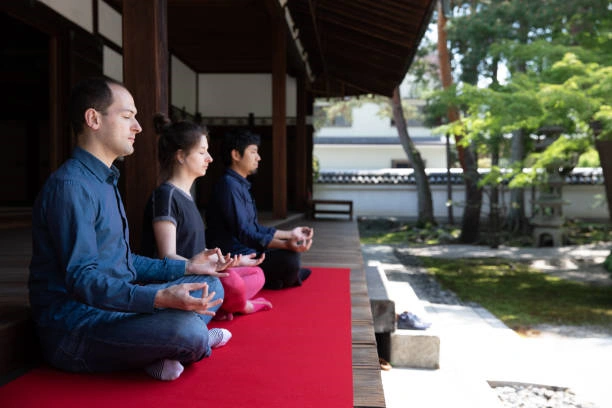Meditation and Emotion Management
With improving living standards, mental health has become a growing concern for many. Emotions, as an essential physiological and psychological response, can adversely affect health and life if not properly managed. To address this issue, more people are turning to meditation to manage their emotions.
Meditation is widely applied in the field of emotion management and is increasingly recognized and researched in today’s society. This method can help reduce negative emotions, control emotional fluctuations, and enable people to maintain inner peace and confidence when facing various challenges and pressures.
The Basic Concept of Meditation
Meditation, a fundamental practice in Buddhism, aims to achieve inner peace and enlightenment through meditation. It is a spiritual practice that uses meditation and specific breathing techniques to foster a sense of self-awareness, understand one’s inner world, and gradually free oneself from troubles.
The main forms of meditation include sitting meditation and walking meditation. Sitting meditation involves sitting in a specific posture, focusing on one’s breathing and inner activity. In contrast, walking meditation requires people to maintain inner calm and peace while walking or engaging in other activities, through controlled breathing and focused attention. The purpose of both methods is to free oneself from the complexities of life and mental stress, achieving inner calm and freedom.
To master meditation techniques effectively, one must undergo proper training and guidance. The basic skills of meditation include meditation practice, breath regulation, attention training, and self-awareness.

Mechanisms by Which Meditation Affects Emotions
As a form of spiritual practice, meditation impacts human emotions through various mechanisms. Research from Oxford University indicates that meditation practice can alleviate emotional disorders like depression and anxiety. Its primary mechanisms for affecting emotions include:
Improving Emotional Regulation Ability
Meditation can help individuals control their emotions and enhance emotional regulation. By deeply observing their inner world, people can more clearly perceive changes in their emotions and gradually learn to adjust and control them in appropriate ways.
Reducing Negative Emotions
During meditation training, individuals gradually let go of fantasies and desires, decreasing dependence on external circumstances. This allows them to experience a sense of mental emptiness more deeply and gradually eliminate negative emotions, improving psychological health.
Enhancing Emotional Self-Management Skills
Meditation practice enables people to acquire emotion management techniques, helping them better cope with emotional challenges in life and work. Through training, individuals can strengthen self-awareness, better understand their emotional changes, and carry out targeted emotion management.
These aspects highlight the main mechanisms by which Buddhist meditation affects emotions. In practice, practitioners can also explore and research more deeply based on their specific interests and circumstances.

Application of Meditation in Emotion Management
Meditation can help people manage their emotions and enhance self-management skills. In life and work, meditation techniques can be used to address various emotional issues, further improving one’s emotion management abilities. Specifically, Buddhist meditation can be applied in the following areas:
Enhancing Communication Skills
In emotionally charged communication scenarios, meditation can help individuals adjust their emotional state and improve their emotional communication abilities. For instance, deep breathing and maintaining an inner calm can help stay composed and rational.
Improving Control Ability
When dealing with emotional problems, meditation practice can enhance one’s ability to control emotions. By learning and applying meditation techniques, one can better manage emotional reactions, effectively handling various emotional issues, and improving quality of life and work.
Strengthening Mental Health
Meditation practice can help alleviate tension, anxiety, and other emotional issues, thereby improving mental health. Through meditation, individuals can reduce worries and burdens, maintaining psychological balance and stability.
Improving Interpersonal Relationships
Meditation practice can help individuals handle interpersonal issues more effectively, thus improving life quality in family and workplace settings. It fosters balance and harmony in social interactions.

Conclusion
In conclusion, the application of meditation in emotion management is extensive and profound. By learning meditation techniques in depth, people can better manage their emotional issues and enhance their emotion management abilities. This has significant implications for promoting mental health and improving quality of life.
Buddhist meditation has broad application value in emotion management. Through further research and practice, the value of Buddhist meditation in this field will become even more evident, contributing greatly to promoting mental health and enhancing life quality.







